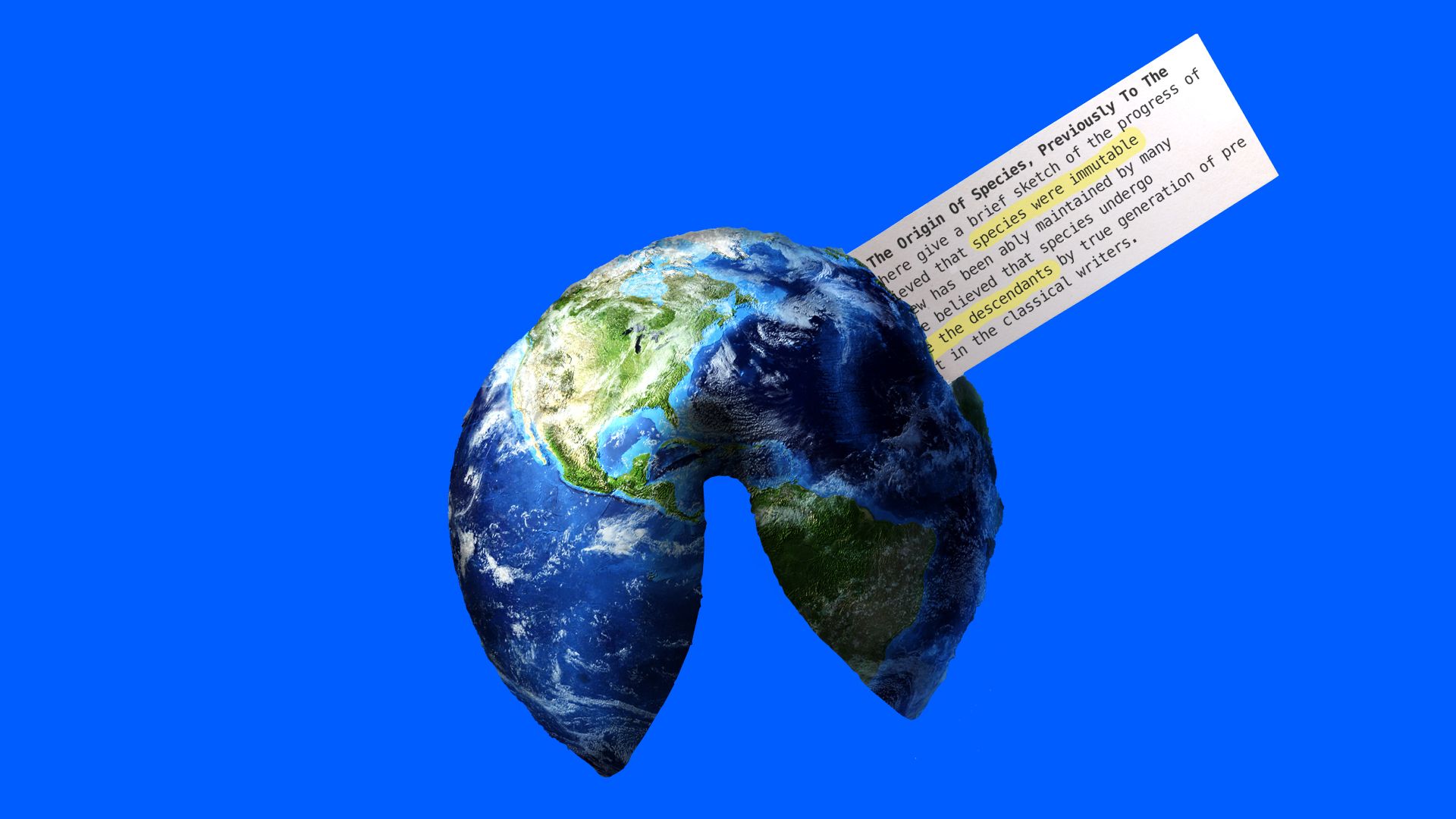Forecasters are searching the past for clues about the future
Add Axios as your preferred source to
see more of our stories on Google.

Illustration: Sarah Grillo/Axios
In today's topsy-turvy world — an unpredictable fog in which technology, geopolitics and the economy seem to turn on a dime — companies and governments would give anything to see around the next corner.
The bottom line: Scientists have yet to create an artificial intelligence system to help with such forecasting, leaving today's futurists leaning on time-honored traditional methods — deeply studying history for clues of what may come next.
The big picture: The utter chaos in politics, economic trends and technology has created "a golden age for futurism," says Marina Gorbis, executive director of the Institute for the Future, a nonprofit research center. "We're in this period where all these things that we took for granted are all of sudden up for grabs."
- Businesses are facing a new industrial revolution that will create new fortunes and destroy others.
- Tech-enabled business models like gig-centered companies are changing how people work in unexpected ways.
- And militaries are rushing to figure out how robots and fast-advancing artificial intelligence will transform war, on the battlefield and on the internet.
Lacking any machine to help them — even the equivalent of a quadrant or a slide rule — futurists to a large degree rely on intuition and common sense. "Unfortunately, it’s more art than science," says David Schatsky, who studies future technologies at Deloitte. "We don't have a machine that spits out, 'Here's a trend based on some data.'"
But there is a largely agreed-upon trail of facts — it's the past.
- "Lately, I think of myself as much as a futurist as a historian," says Gorbis, of the Institute for the Future.
- IFTF researchers start with the past. Then they search for blips in current events that buck the historical patterns they find.
- "It could be a new technology being developed, or it could be a piece of data that tells you, 'Oh my gosh, there's something different going on here,'" Gorbis says.
Down the road, AI could help. Machine learning could be better than humans at scanning history and finding anomalies in the present, says Bob Murphy, head of the computational biology department at Carnegie Mellon University.
For now, though, futurists work largely by hand, blurring lines between fiction and nonfiction, econometrics and ethnography, history and forecasting.
- Peter Singer, a senior fellow at New America, writes academic books on topics like cyberwar and private military contractors. But in 2015, he co-wrote a novel called "Ghost Fleet" with author August Cole.
- Science fiction has a history of preceding reality, says Singer. H.G. Wells wrote about an atomic bomb in 1914, decades before the first one was tested.
- The novel may have influenced the physicist Leo Szilard to pursue research into nuclear chain reactions. And thanks to a wealth of sci-fi about a nuclear age yet to come, the public knew President Truman was talking about when, in 1945, he announced that the U.S. had dropped an atomic bomb in Japan.
"Science fiction is a valuable tool for policy because it can give everyone a shared vocabulary for grappling with emerging technologies. … [It] allows us to explore and anticipate the real human consequences of new technologies, laws, and social transformations."— Ed Finn, director of the Center for Science and the Imagination at Arizona State University
The ultimate goal, says Gorbis: To find the things that "if we don’t pay attention to them now, we’re gonna kick ourselves five years from now."
